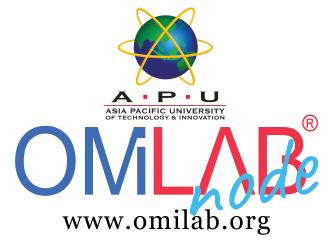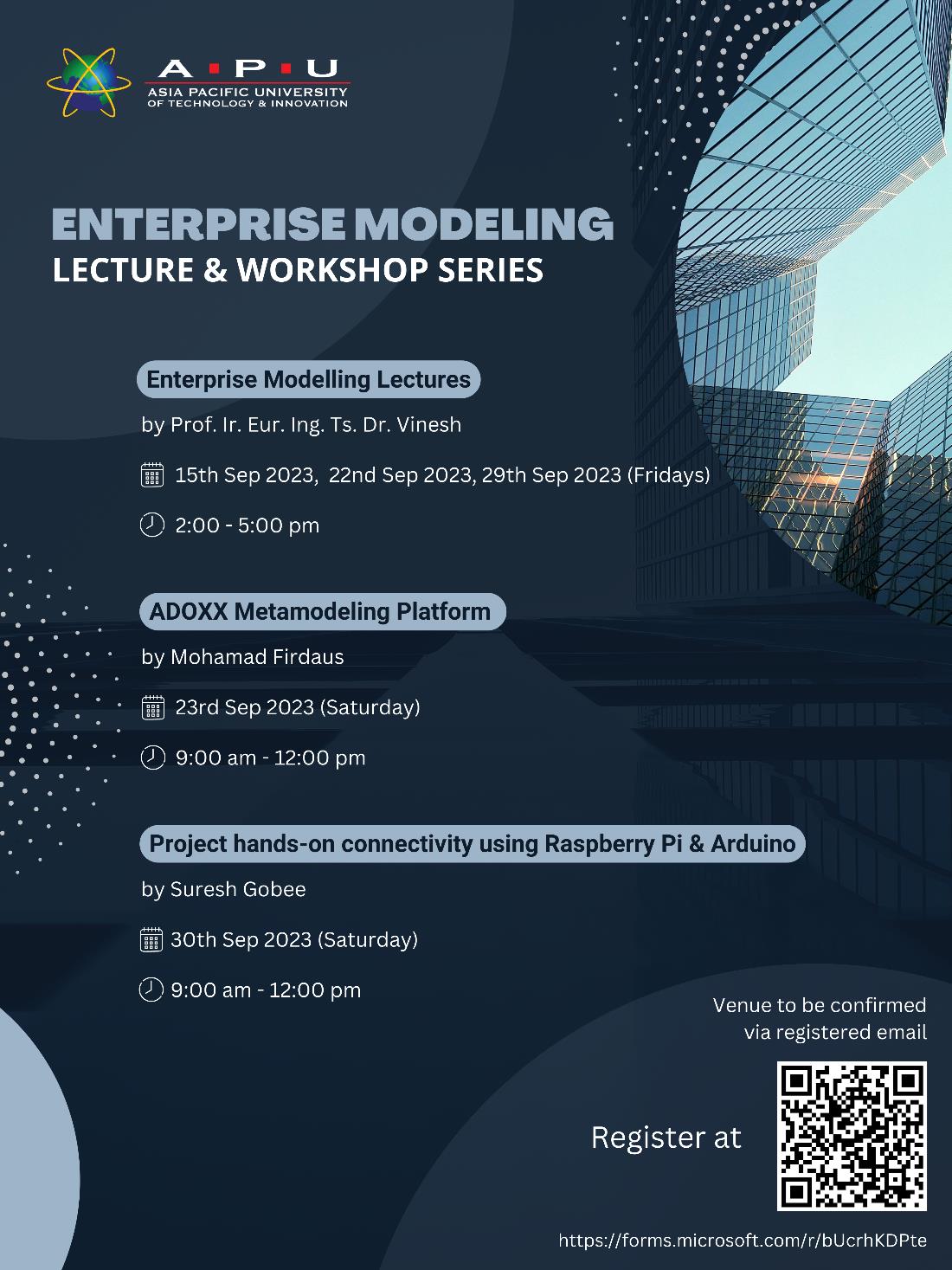
OMILAB@Asia Pacific University
"Model Driven Engineering Approaches for Technology Enhanced Learning"
OMiLAB@APU is dedicated to the exploration and application of Model-Driven Engineering (MDE) approaches in Technology Enhanced Learning (TEL).

About the OMILAB Node
OMiLAB@APU is dedicated to the exploration and application of Model-Driven Engineering (MDE) approaches in Technology Enhanced Learning (TEL). Our lab focuses on bridging the gap between instructional requirements and software architectures promoting infrastructures that facilitate TEL system implementation. We provide a well-defined framework for researchers to innovate within. Our competences include competence modeling, proficiency level understanding, and competence development. We believe in harnessing the power of MDE to create effective, adaptive, and collaborative learning systems. Our goal is to leverage technology to enhance learning processes and help individuals develop the skills they need in an increasingly digital world.
Competences
- Competence Modeling - This involves understanding how to model and represent competence-related information in a system meaningful way. It's about defining the skills, knowledge, and abilities required for a particular task or job and then creating a model that represents these elements.
- Proficiency Level Understanding - This involves understanding the different levels of proficiency in a particular skill or competency. It's about being able to assess a person's level of competence and provide appropriate training to improve their skills.
- Competence Development - This involves designing and implementing training programs that target specific competences. It's about using technology to enhance the learning process and help individuals develop the skills they need.
About the Hosting Organisation
APU is a private university located in Kuala Lumpur, Malaysia. It was established in 1993 as the Asia Pacific Institute of Information Technology (APIIT) and later granted University College status in 2004. APU offers a wide range of academic programs and career opportunities to over 13,000 students from over 130 countries. It is ranked No.1 for international students, inbound exchange, and international faculty by QS Asia. The university's vision is to be a leading university of technology and innovation transforming students into highly employable, competent, and future-proof professionals. It has earned an enviable reputation through its achievements in winning a host of over 400 prestigious awards at local and international levels.
Results
Get an overview what this OMiLAB has accomplised! Selected results are presented below as a contribution to the global community:
All further results of the OMiLAB Node are via the organizer.
Activities
The following, selected activities are organized by the OMiLAB.
Anyone Can Model - Enterprise Modeling Lecture & Workshop Series
It was held from September 15th to 29th, 2023. The series, which spanned over 25 hours, was attended by 20 academic staff members from eight different schools and two Ph.D. students. The lectures covered 36 theoretical and case study topics, providing a comprehensive overview of the ADOxx modelling platform and its applications, with a focus on Digital Leadership. The workshop featured hands-on segments on developing concept models practice in Scene2Model, and coding for connectivity using Raspberry Pi and Arduino.
- Upskilling- Participants, including academic staff and Ph.D. students, had the opportunity to upskill in areas such as Business Modeling, No-coding Approaches for Business Logic Modeling, Integrating Decision Models, Semantic Interoperability, Ontology-based Enterprise Modeling for Human and Machine Interpretation, Process-oriented Quality Management for Environmental Sustainability, and Data Asset Monetization.
- Practical Experience - The workshop provided hands-on experience in developing concept models in Scene2Model, as well as coding for connectivity using Raspberry Pi and Arduino.
- Cultivating Digital Leaders - The event is part of a longstanding technical relationship aimed at cultivating Digital Leaders, laying the foundation for Conceptual Modeling in Digital Innovative Ecosystems. This lead to the development of more skilled professionals in the field of digital innovation.
Rescue AI - Smart City Disaster Visualization with Meta Modelling. Presentation by Prof. Thiruchelvam @NEMO2024 Summer School
Floods are one of the most often occurring and damaging natural hazards. They impact the society on a massive scale and result in significant damages. To reduce the impact of floods, society needs to keep benefiting from the latest digital eco-system innovations. Drones equipped with sensors and latest algorithms (e.g., computer vision and deep learning) have emerged as an engineered platform which may be useful for flood monitoring, mapping, and detection activities in a more efficient way than current practice. Smart cities with digital twins (SCDT) uses information and communications technology (ICT) to enhance its livability, work-ability and sustainability through the virtual representation of a physical object or system across its life-cycle. The use of meta modelling allows for visualization and assessment of the performance of remote sensing and geographic information system techniques for analysing flood events using UAVs.
Resources
The following cyber-physical resources are available at the OMILAB node:
Bambu Lab X1 Carbon
3D Printer
Creality Ender-3 S1 Pro
3D Printer
Laser Cutting Machine
Soldering Station
Ductless Fume Hood & Bubble Etch Tank
PCB Fabrication
TMS Machine Vision Kit
Machine Vision
Oculus Quest Headset
VR Headset
Publications
Relevant publications of the OMILAB node:











